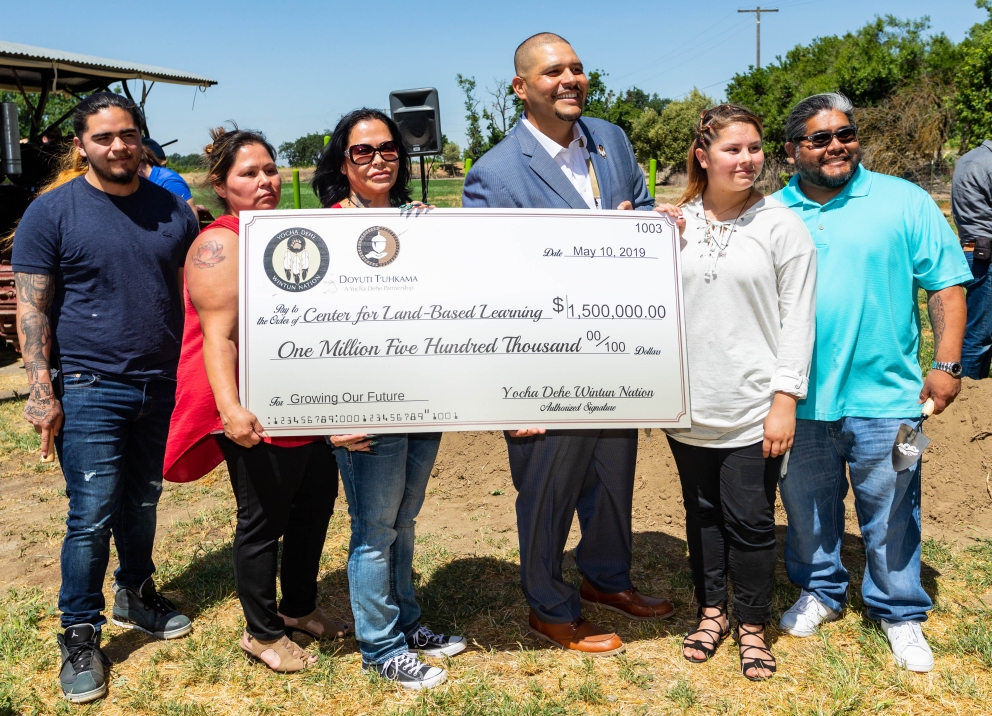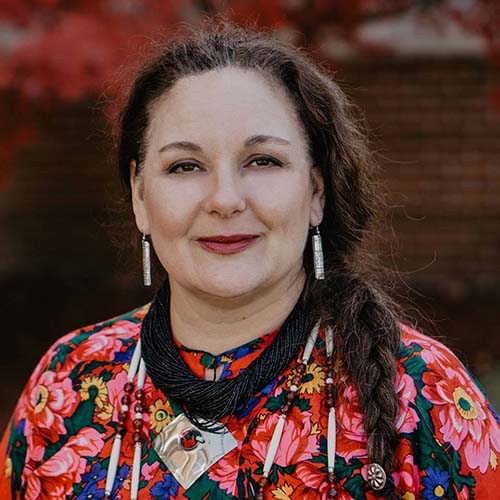
- Details
- By Nanette Kelley
WOODLAND, Calif. — In May 2019, the Yocha Dehe Wintun Nation, the historical farmers and caretakers of California’s Capay Valley and surrounding area, made the lead donation to the Center for Land-Based Learning to build a new statewide headquarters and expand its programs and services.
The tribe donated $1.5 million to the Center for Land-Based Learning’s new site in Woodland, Calif., which broke ground in May 2019. But due to COVID-19 closures, this year’s grand opening has been postponed.
“We are extremely grateful to the Yocha Dehe Wintun Nation for their remarkable and inspiring gift,” said Mary Kimball, executive director of Center for Land-Based Learning, in a 2019 press release. “Their donation, in conjunction with the generous support of Clark Pacific, gives us the capacity to train, support and inspire future generations of farmers, agricultural leaders and natural resource stewards as we look towards the next 25 years.”
With projects in 27 counties throughout California, the Center for Land-Based Learning’s mission is to inspire, educate and cultivate future generations of farmers, agricultural leaders and natural resource stewards. The new headquarters is located on an original section of Patwin tribal land and will serve as both the organization’s statewide headquarters and workforce development campus.
In recognition of this generous gift, the Center for Land-Based Learning named its new administrative building after the tribe.
The new facility boasts numerous new features, including the Yocha Dehe Farmhouse – a 5,400-square-foot building to house new administrative offices, community services and classrooms; new and existing barn buildings for storing training equipment and supplies, as well as a produce washing, packing and cooling station; three farm fields totaling 30 acres (which is six times more acreage than the former site); a Cache Creek riparian habitat and restoration area; and nearly nine acres of creek-side habitat and floodplains for restoration education, with space for resource conservation and “beautification” training.
Tribal public information officer Ben Deci said that the tribe doesn’t only support projects with financial upsides, but is willing to pursue endeavors that align with their people’s values. “This project relates to our values and our beliefs and it will help to benefit the whole region,” he said.
According to the tribe’s website, the Yocha Dehe owns one of the most diverse farming operations in Yolo County. They are one of only a few tribes with expanding agriculture in California, and part of their lands are in permanent conservation easements.
“The Yocha Dehe people have a deep connection with the land of the Capay Valley, where our ancestors lived for hundreds of years, and we are committed to protect and preserve it,” said Anthony Roberts, Tribal Chairman for the Yocha Dehe Wintun Nation.
One of the best ways they do that, he added, is by working “together as a community” to educate others about the importance of caring for the valley, soil and environment around them.
“For 25 years, the Center for Land-Based Learning has led the way in developing agricultural leaders and natural resources stewards among us,” Roberts said. “We are proud to partner with the organization to support what we are confident will be incredible success over its next quarter century.”
More Stories Like This
Native News Weekly (August 25, 2024): D.C. BriefsUS Presidents in Their Own Words Concerning American Indians
Merry Christmas 2025
Navajo Man Faces Vehicular Homicide Charge After Child Killed at Navajo Nation Christmas Parade
Next on Native Bidaské: Lumbee Tribal Chairman John Lowery
Help us defend tribal sovereignty.
At Native News Online, our mission is rooted in telling the stories that strengthen sovereignty and uplift Indigenous voices — not just at year’s end, but every single day.
Because of your generosity last year, we were able to keep our reporters on the ground in tribal communities, at national gatherings and in the halls of Congress — covering the issues that matter most to Indian Country: sovereignty, culture, education, health and economic opportunity.
That support sustained us through a tough year in 2025. Now, as we look to the year ahead, we need your help right now to ensure warrior journalism remains strong — reporting that defends tribal sovereignty, amplifies Native truth, and holds power accountable.
 The stakes couldn't be higher. Your support keeps Native voices heard, Native stories told and Native sovereignty defended.
The stakes couldn't be higher. Your support keeps Native voices heard, Native stories told and Native sovereignty defended.
Stand with Warrior Journalism today.
Levi Rickert (Potawatomi), Editor & Publisher

